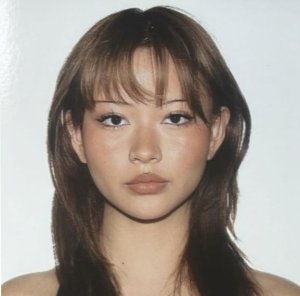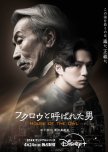
Since this series is heavily focused on Ryutaro (Tanaka Min) we as an audience get an insight in to how he's clueless about his children's personal lives and interests, because he's so caught up with his work-life.
There's no fault that this tv-series does not have the adrenaline boost that Imawa no Kuni no Alice has - And that is because the Ogami family's life is dull. There's no happiness nor love as there's always a grey cloud hovering over their heads at all times, and I think that's what's unique about this series because their emptiness is reflected in to the overall vibe of this series hence explaining why it's "boring" or "slow", as a lot of people have commented...
Tanaka Min carries this series on his back! Despite his character being "emotionless" throughout the majority of the runtime, you feel what he feels with his micro-expressions and the small details. They've constructed the character of Ryutaro beautifully as an anti-hero where in some parts you're confused wether to have a hostile feeling towards him or sympathize with him - But it's a fact that Tanaka Min is the glue of this series!!!
As for Mackenyu, they've definitely used his name and face for the boosting of promotion for this series and I agree that during this 10-episode time he haven't gotten the fair distribution as a credited co-main actor; However by the looks of the finale episode, that'll change soon as the hints are clearly being set up for him to fit in to the shoes of you-know-who ;)
Over all, I genuinely feel like majority of you lot have not given this series a fair chance. It's a fairly easy tv-series to follow along with, there's no complication nor major plot-hole and the acting is relatively okay - And the cinematography is wow-mazing!!! There's a true beauty to this "slow" series if you guys look under the surface carefully with an open mind and eyes.
Was this review helpful to you?

Intense monster scenes elevate a damn good looking package.
With stunning cinematography, hearty music and intense action scenes, the latest film in the Godzilla series delivers delights for almost all the senses.Godzilla Minus One is film number 37 in the franchise, and the 5th film since the reboot. Does that mean you have to have seen a bunch of Godzilla movies to keep up with this? I don't think so. My own experience with the series is limited and I stuck with it. Necessary information still emerges, either in dialogue or by simply witnessing Godzilla's progress on the white screen.
It is a period film that takes place during and after the Second World War, and works in harmony with the very first Godzilla from 1954. Which certainly makes it easier.
It also helps that the monster itself isn't the focus of the film. He's there, absolutely, and of course it's Godzilla's rampage that drives the story. But the focus is very much on the people. Above all on the kamikaze pilot Kōichi Shikishima.
Or the supposed kamikaze pilot. For Shikishima (Kōichi Shikishima) has second thoughts and fakes technical problems with his plane. Not long after he lands on an island, and the giant, God-like, monster attacks and the pilot is one of the few survivors. When he returns to Tokyo, it is with real feelings of guilt over what happened.
It is feelings of guilt that haunt Shikishima for a long time. They set it up in the relationship with Noriko Ōishi (Minami Hamabe), a young woman he meets and wants to help. They make themselves known in the relationship with the colleagues and later friends he meets in his new job. They guide his actions when Godzilla reappears and attacks Tokyo.
Kōichi Shikishima and his relationships are of course the heart and soul of the film. It elevates Godzilla Minus One to something more than just a monster movie, it gives the movie value beyond just seeing a cool monster destroy cities and boats. It also becomes a bit too much.
I struggled with the rating for this movie. Because at times the people's stories are drawn out for too long. The story is losing momentum and I'm starting to lose interest. Godzilla Minus One has the characteristics of melodrama, a genre that I personally have a hard time with. It was in these moments that I considered a low rating.
But then the monster makes an entrance again. The action scenes, Godzilla's attacks and the humans' fight against him, are genuinely exciting and at times gripping. The energy is back.
Also (and almost more importantly) this is a damn good looking movie. The photography is beautiful, the scenography places itself believably and perceptibly in the current period, and the special effects work. Godzilla himself is computer-animated, and looks good, but at the same time in a way that I couldn't help but wonder if there could still be a dude in a very well-made suit in there.
Not to mention the music. Composer Naoki Satō may well be the film's strongest card. Conveyor of emotions, underpinning of action sequences. It is an experience.
And thus I still end up in a reasonably strong 4 Star. Despite its flaws (and certainly not everyone will agree that melodramatics are a bad thing), Godzilla Minus One is an incredibly well-made film, an impressive piece of craftsmanship that doesn't always, but at least often enough, offer cinematic thrills.
Was this review helpful to you?

Uncle Boonmee Who Can Recall His Past Lives
1 people found this review helpful
Beautiful, fairytale - But strange.
This quirky Thai film has already won acclaim and won the Palme d'Or at Cannes. The question is whether the shelves possibly focused on the film's stylistic appearance and perhaps did not really understand its rather hard-to-digest message. Because although the film is atmospheric, beautiful and contains a lot of interesting philosophy, it also becomes long-winded, pretentious and after a while boring.Uncle Boonmee is dying of a serious kidney disease and is spending his last time with loved ones. At a quiet dinner with i.a. his disabled sister-in-law, both his deceased wife, in the form of a ghost, and his long-lost son, now a hairy monkey monster who lives in the forest, appear. They begin a trek through the jungle and Boonmee gets time to think about his current - And past - Life.
Of course, it sounds a little more than crazy, but the fact is that you swallow most of these unexpectedly dizzying whims and supernatural elements with hairs and holes as the film lurches along at such a pleasant, fine-tuned pace that you are drawn into the story and its fairy-tale atmosphere - At least for a while. Because after director Apichatpong Weerasethakul builds an imagination-tickling opening whose feel can be compared to a softer David Lynch reel with a more warm than unpleasant mood, the film loses energy the longer it goes on.
We get a taste of small, exciting stories and life destinies which, however, have abrupt ends or lack resolutions altogether. One longs in frustration for some kind of score or final clip that can provide an explanation for the film's surreal and, above all, strange scenes. Because it's a weird movie. It becomes clear that it is a foreign culture we are dealing with and even if a lot of philosophy and slightly humorous lines go home, there is a lot that goes completely over our heads. You want to understand but grope in the dark.
Oral sex with catfish, showering monks, mysterious caves and those Bigfoot-like monkeys with red, glowing eyes... These are awesome and beautiful scenes, but when they go on for ages without leading anywhere, you start sneaking a look at the clock. While I still appreciate films that take their time, I also appreciate that extended scenes have some kind of feeling to convey. Of course, it is certainly possible to analyze until the cultural skull cracks, but then you should probably be a little familiar with Thai culture. For the rest of us, it will be a beautiful, odd but rather boring film.
However, the craftsmanship is very impressive. Weerasethakul has a fantastic fingertip feel when it comes to the fairy-tale scenery and situations - One can sense a jealousy of Tim Burton who named the film one of the best of the year.
Was this review helpful to you?
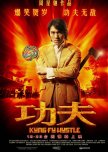
Crazy asian kung fu comedy.
For the majority of the general audience in the Western world, Asian cinema consists of either horrors or beautiful, fairy-tale stories that are probably best remembered for all the acrobat-like movements in the air. Which is surprising as we should know better considering the many different, mainly Japanese and Chinese, genres that have inspired the powerful neighbor to the east to produce remakes as well as independent films. The contribution, Kung Fu Hustle, is further proof of the heterogeneity among Asian films.Sing (Stephen Chow) has big plans for his life. As a child, he was told that he was destined to do great things for the good of the world by using a very special and very unusual Kung Fu technique, which involves defeating your opponent with just one palm. But Sing soon discovered that this technique was not quite so simple and his palm not as powerful as he thought. So instead of saving the world, he decides to become as villainous as possible. As this career also seems doomed to failure, Sing tries to give it new life by applying, together with his crony, for membership in the infamous mafia Yx gang. This party consists of a large number of black-clad men equipped with, you guessed it, axes. After unsuccessfully trying to extort money from a hairdresser in the poor residential area , Sing manages to attract the attention of the leader of the Ax gang. But maybe not really in the way that Sing wanted, as his behavior gives rise to a violent conflict between the Yx gang and the residents of the residential area. He himself finds himself standing in no man's land.
According to the film's title, we should see, during the screening, a lot of Kung Fu practice and we do. Or to be honest, as I am not further acquainted with this martial art, it is impossible for me to distinguish Kung Fu from other similar disciplines. But since the movie is called Kung Fu Hustle and they talk about Kung Fu in the movie, I assume they also practice Kung Fu. The reason why I mention this is not to account for my knowledge or rather lack thereof, but to point out to all of you frowning at another fight movie that this is the first martial arts production (that I've seen) that never gets boring for us uninitiated. The reason is simple: The film is consistently really, really funny. And don't ask me to pick a favorite part because everything is fun in this movie, everything from the props to the lines.
But what I appreciate most is that Stephen Chow (the film's director and lead actor) dares to take down the Chinese film from the pedestal it has been on since Crouching Tiger, Hidden Dragon because of its beauty, by making Kung Fu Hustle into a mundane and slightly disheveled film. Now I hope no one will misunderstand me, with these two words I neither mean that various Kung Fu techniques appear in my everyday life nor that the film looks worn and sloppy. Because it is beautiful, but in an appropriate way, as it refuses to be perfect in terms of appearance. Thanks to this, you as a spectator, full of admiration for the film's surface, do not have to keep a respectful distance. Which you were, more or less, forced to do by the Chinese films previously, in much the same way as when you buy an unusually beautiful material thing and then do not dare to use it for fear of ruining it.
There is only one downside to Kung Fu Hustle, that it is so good that it risks being noticed by those in power in Hollywood and used as a template for an upcoming remake. Which would be devastating given the fate that usually awaits the films that find themselves in such a situation: As soon as the American remake sees the light of day, the foreign predecessors are relegated to the obscured shelves of video stores, observed in the future only by dedicated cineastes. But I may be exaggerating this concern.
Was this review helpful to you?

This review may contain spoilers
What makes a father?
New York Film Festival 2013 - Beautiful and fragile about a family in the midst of an enormous tragedy, from Japanese director Hirokazu Koreeda - Previously, among other things, Guldbag-nominated in 2006 for Nobody Knows.What makes a man a father? Is it the biological bond with one's children or is it the time he spends with them, the games, the laughter, the comfort? It was this question that Japanese director Hirokazu Koreeda wanted to explore when he wrote the screenplay and then made the movie Like Father, Like Son. Partly because the sense of parenthood did not come as naturally to himself as it seemed to do to his wife.
It is, of course, extremely unusual, but it has certainly happened that children have been confused at birth and the parents come home with the wrong baby. At least in the days when children's names were written on their feet with a marker, as one of the doctors says in the film. But what happens if it is discovered through a blood test that the child has already reached 6 years old.
This affects the career man Ryota and his wife Midorino. The son Keita turns out to be biologically someone else's and their biological son has instead grown up with Yukari and Yudai. Crisis - Of course! I don't know if there is a certain cultural difference between our approach and the Japanese or if cinematic liberties have been taken to move the plot forward, but according to the hospital, almost all parents who were previously affected have chosen to switch children.
The only one of the parents who seems convinced that it's the right way is Ryota. Success is important to him and Keita hasn't quite shown the progress he was hoping for. Maybe it's because the two don't share the same DNA? Ryota has also worked a lot during his son's upbringing and has not spent the time required to form the strong father-son bond that his wife has. At least he thinks so.
Despite the hint of science fiction over the story, there is nothing artificial in the way it is presented. The tone is downright serious and the emotions displayed are naked and fragile, without the slightest hint of exaggeration. The actors portray a family in the midst of a tragedy where none of the choices they can make turn out to be right. And it is above all Ryota who gets the opportunity to develop and discover what kind of father he wants to be.
Was this review helpful to you?
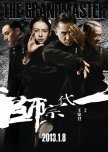
This review may contain spoilers
A battle you won't soon forget.
The opening film at the Berlin International Film Festival took a full 9 years to complete. Veteran perfectionist Wong Kar Wai is putting in the finishing touches, spending so much time on In the Mood for Love that the staff behind the Cannes festival worried that the film would not be able to enter the competition where it was scheduled to have its world premiere in 2000.The year is 1936 in southern China. Gong Baosen (Wang Qingxiang) has passed his glory days and is about to retire. It is celebrated according to tradition at the Gold Pavillion brothel where Baosen challenges a younger man with the potential to take over the title of kung fu master. Ip Man (Tony Leung Chiu Wai) - Who in real life tutored Bruce Lee and trained in Wing Chun - Accepts the ordeal and takes over as the film's centerpiece.
War breaks out in Foshan between China and Japan and in the meantime Gong Baosen is murdered by his disciple Man San. Before leaving Earth, he wishes his daughter, Gong Er (Ziyi Zhang), to renounce a life in the world of martial arts, live in peace with a man by her side and not seek revenge. But can she resist the temptation with her father's fighting spirit in her blood?
The Grandmaster is told as a memoir with an eye on the past where the fourth wall is broken, jumping between romances and civil wars. The film spins on for two decades with clanging swords, pattering rain and kicks left and right. Sound, special effects and saturated lighting work together to form a kaleidoscope. Clouds of smoke and the sound of lovely strings in the background are earlier characteristics that can of course also be found in this work.
One could go on forever about the precise technical skills that make one drool with fascination. There is no doubt that the material has been handled with precision and the stylistic beauty is both a credit to the direction and script by Wong Kar Wai, as well as the impeccable work of cinematographer Philippe Le Sourd and William Chang Suk Ping who edited all of Wong's films. The camera records every little detail and every frame is a photograph or a painting.
The product is a film that, due to its dedicated cast, probably offers the most sensational and beautiful fight sequences ever seen. It provides a crash course in martial arts etiquette, different styles and holds, as well as the history of the Chinese nation with conflicts between the south and the north.
Was this review helpful to you?

Well made and shocking.
Director Zhang Yimou does not shy away from horrors. He avoids pushing our noses into the violence, The Flowers of War is after all a drama and not a splatter film. And it is a drama, a well-made and thoroughly well-acted one.Christian Bale notwithstanding, The Flowers of War was not made with American money (and apparently only the second all-Chinese film ever with a Hollywood star in the lead role), which may explain why it never made it to cinemas in Sweden. Because films that are not Swedish or English rarely do. It's certainly not a masterpiece, I don't intend to go that far, but surely there would have been room for a larger audience.
In The Flowers of War, Christian Bale plays a not-quite-clean funeral director, John Miller, who goes to a Catholic church in Nanjing, China, to take care of the dead priest there. But it is not very simple, because it all takes place during the so-called Nanjing Massacre, and there is chaos both on the way to and in the church. Where there is also only a group of children, with one exception consisting of girls, left. The not-quite-clean-haired undertaker decides to stay for a while, he has to get paid, and soon finds himself in a protective position he never asked for.
A history lesson might be in order, if you, like me, have never heard of the massacre in question. There was a six-week period after the then-capital of China, Nanjing, fell into Japanese hands, during a Japanese invasion of the country in 1937 (the Second Sino-Japanese War), when invading soldiers in the most heinous ways raped and murdered mostly Chinese civilians in and proximity to the capital.
Director Zhang Yimou (who has, among other things, fairly well-known Hero and Flying Daggers to his name) does not shy away from horrors. He avoids shoving our noses into the violence, The Flowers of War is after all a drama and not a splatter film, but it is somehow, in or out of picture, ever-present. From the initial attack to the aftermath of inhuman acts. Efficient. Nasty.
And it is a drama, a well-made and downright well-acted one, and without checking numbers I'd venture to guess that it was made on a sizable budget. Then it's a bit of a shame that it falls a few times along the way. There are no deep pits, but various small shortcuts in the story and one or the other forced emotional moments can still disturb. Although it's clear, by all means, it's still a lot better than the average modern Spielberg film.
Comments regarding Christian Bale's effort should be redundant, at least if we assume that people generally think his efforts are shitty. And I belong to these general types.
Was this review helpful to you?
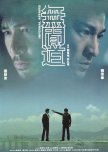
This review may contain spoilers
Well-made, realistic Hong Kong thriller.
In the role of Yan, we see Tony Leung, better known as the world's best actor after films like Bullet In The Head, In The Mood For Love and Hero. Leung plays a police officer who has been undercover for 9 years and wants out at any cost. He has trouble sleeping and can only sleep with his therapist. In the role of Ming we see Andy Lau, also a superstar in Hong Kong but in lighter productions. In Infernal Affairs he is fantastic as the cop who is torn between his obligations to the Triad and his ambition to become a real cop. Just like Yan, his life is one big lie.Two men. Both undercover. One with the triad, one with the police. In flashbacks from the cadet school, Shawn Yue plays young Yan and Edison Chen plays young Ming. Both have significantly larger roles in the prequel that was quickly produced. Police chief Wong (Anthony Wong) and mob boss Sam (Eric Tsang) are the only ones who know each other's identities. Even though the plot sounds quite simple, the film never ceases to surprise.
What keeps Infernal Affairs from a higher rating is a certain inconsistency in the storytelling. Sometimes it is fate that guides the story forward, sometimes chance, sometimes the characters. And Ming's girlfriend writing a book about a schizophrenic person feels a bit clever.
Many believe that with Infernal Affairs Hong Kong cinema has grown up. Infernal Affairs is NOT over-the-top. The actors do NOT overplay. No car chases, no special effects and just a little slow-motion. The film is strikingly low-key and subtle. Just take the scene when Yan meets an old girlfriend in town and she lies about her daughter's age. Look at her eyes, hear her answer a little too quickly. The scene becomes an effective contrast to Ming's happy family life, he has the life that Yan should have. But to claim that Infernal Affairs would be some kind of trend breaker just shows ignorance. This is exactly the kind of well-made, realistic crime films Ringo Lam has been directing since City On Fire in 1987. But of course, this is the Hong Kong film for those of you who don't like Hong Kong films. You who preferred Heat and De Niro/Pacino to Face/Off and Travolta/Cage.
FYI: Martin Scorsese directed an American remake.
Was this review helpful to you?
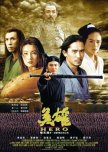
This review may contain spoilers
A colorful epic.
Zhang Yimou not only creates a colorful epic, he owns the entire martial arts genre with this historic achievement. With film art's most beautiful color palette, he shows that style can sometimes both be and enhance the content.There are films that are beautiful, films that are so dazzling in their imagery that it hurts and then there is Hero. As Zhang Yimou seriously ventures into the martial arts genre that was given new life by Ang Lee's Crouching Tiger, Hidden Dragon, he continues on the same track as the Taiwanese, but adds something all his own, a color scheme that beats everything in theaters now and, probably forever.
Because when Hero after a rather black introduction explodes into its scales, there is no one with fully functioning color vision who cannot drop their chin. Like when Maggie Cheung and Tony Leung fight in green, or when Jet Li and Donnie Yen spar with sound and water in greyscale monochrome. Or the most beautiful of all: A passionate red fight among yellow leaves between Zhang Ziyi and Maggie Cheung. Right then and there, I am inclined to declare this the world's most beautiful experience.
But there is an action too. A rather unexciting one. It revolves around the unnamed hero played by Jet Li. In a long conversation with the King of Qin, an assassination attempt on him is played out from three different points of view. All in different colors and with different intentions. Once the truth is revealed, both the hero and the king reveal sides that have been hidden until now in an emotional climax that may not be entirely politically correct, but in the context makes perfect sense.
However, the journey there is colored by Yimou's imagery. And what imagery! There is not a single frame in Hero that any other director would kill to be behind. Sometimes it becomes almost distancing to see scene after scene surpass each other in terms of creativity with composition, sound and message. The problem with films like this is usually that it can all become a bit too much style instead of substance and there are times when Hero comes dangerously close to not being much more than a pretty tableau. That's where the actors come in.
The under-the-radar couple Maggie Cheung and Tony Leung have made about ten films together, which is evident in their undisguised chemistry. It absolutely sparkles around the duo, who instill warmth and believability behind their color-changing outfits. Even the wooden goat Jet Li copes excellently in a subdued role and Chen Daoming is as beautiful as any in the role of the King of Qin. The only one who sadly doesn't quite make it out when all the kicking, sword-slapping and betrayal is over is actually Zhang Ziyi, the exclamation mark from Crouching Tiger, Hidden Dragon, but that's more because her role is a pale copy of the one in Lee's film. However, she is still beautiful as day.
It would be very easy to argue that Hero is not much more than a pretty surface that sometimes drags out a bit well with its long fight scenes. That statement is also true when rating the film, but what makes Yimou's film a modern classic is that the surface is what makes the film interesting from the start. A story where colors tell more than dialogue. A film that stretches gravity to achieve a new aesthetic. A masterpiece.
Was this review helpful to you?
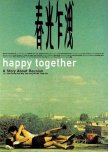
This review may contain spoilers
Gay couple at the center of controversial drama.
Hong Kong-produced drama from 1997. Happy Together is about a Chinese gay couple who have sought love in Buenos Aires. The film is controversial for being Asian: The opening scene shows the two men intimately making love to each other. The plot revolves around Po-Wing and Yiu-Fai's relationship. They seek to find out whether they can live together with each other. Yiu-Fai is more determined and strong who often takes care of the other and wants to move on with the relationship while Po-Wing is the carefree and easy-going one, always ready for new adventures.In order to get away from the city and find some peace and quiet for a while, they choose to go on a trip to the countryside over a weekend. It doesn't quite go as planned: Instead, they end up wrong and become spiritually further apart. Back in Buenos Aires, Yiu-Fai leaves his partner and takes a job as a doorman at a nightclub. However, he thinks about him and wants him back, until one night he sees him with other men.
This is a strong and well-made drama with convincing acting, which was also awarded for best director at the Cannes festival the year it was released. Buenos Aires nightlife and tango traditions are captured beautifully through the camera. It is a prime example of new film noir: Happy and decadent on the surface, heavy and sad in the depths and as the plot progresses. The feeling is also enhanced by the fact that the film is mostly filmed in black and white.
The closing scene is appropriately accompanied by the 60s band Turtles' smash hit Happy Together. Wong Kar-Wai, who is responsible for directing, is today considered one of Hong Kong's foremost directors.
Leslie Cheung, who plays the easy-going Po-Wing in the film, was one of Hong Kong's more popular and openly gay performers before he took his own life by jumping off a skyscraper.
Was this review helpful to you?
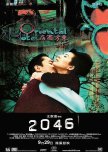
This review may contain spoilers
About old flames from a bygone era.
If you say the Hong Kong genre, most probably think of old martial arts films with Bruce Lee, 80s and 90s action comedies with mainly Jackie Chan or newer and more brutal action films like Internal Affairs. Other films are also being made in Hong Kong. One of the most successful directors in recent years is Wong Kar-Wai. Among his previous works that have been shown in Swedish cinemas, In the mood for love and Happy Together can be mentioned.2046 is a love drama set in 1960s Hong Kong. Journalist and writer Chow looks back on his life as a bachelor and his past love affairs. In search of work and excitement, he travels between Hong Kong and Singapore. He enjoys life with different girls: Many of them come and go but the memory of some remains. He also writes a science fiction book entitled 2046, in which people ride a train to a future where everything and everyone is unchanged as it once was. The title of the book is the same as the number of his hotel room, but it is really strongly influenced by his longing for his own love memories and the girls he didn't get or that he wanted to be with anymore.
With some girls it sometimes becomes a hot passionate relationship, with others it stops at friendship: As with the hotel owner's two daughters. They have two completely different personalities: One wild, spontaneous and a little crazy, looking for new adventures. The other, played by Maggie Cheung, sensitive and fragile like a flower that must be taken care of. To help her with love, Chow agrees to smuggle her love letters to her, hidden from the father who disapproves of her relationship with the young Japanese.
2046 is a beautiful and well-made film that is easy to follow and yet goes deep without being boring. Tony Leung, who also appeared in Hero and Internal Affairs III, is absolutely superb in the male lead role. Like several of Wong's previous works, 2046 also takes place for the most part in 60s Hong Kong. What is typical for him also comes through clearly in this film: A quiet drama made with beautiful images accompanied by wonderfully beautiful music.
In 2046, Wong has assembled several of the best Chinese actors of the moment. The result can only be a very beautiful and successful film. The interaction with everyone involved is total. Everyone is so convincing in their portrayals and they really get into their roles. The majority of those involved have also collaborated with Wong in his previous films: Tony Leung, for example, played in both In the mood For Love and Happy Together and was awarded for both of these, as was Maggie Cheung who also received an award for In the mood For Love.
Another participant is the actress Zhang Ziyi, who is currently very hot and popular above all in her home country of China, and who, by the way, can also be seen in Flying Daggers.
Wong's style is special and unique and it shows in his films. The camera is constantly present and follows tenderly and carefully above all the movements of the protagonists. As a viewer, you are invited into the action and feel almost like part of the film. You are touched. To manage to get the viewer involved like he does is commendable!
Was this review helpful to you?
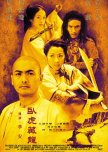
Film at its best!
Women can be absolutely amazing sometimes. In Ang Lee's classic and glorious martial arts film, they are the ones responsible for all the action, all the rescues and villain roles. The men are mostly allowed to be contemplative and stand silently by. It simply couldn't be better.The story itself has several spices of old myths and legends, but is also a very current and moving love story where looks mean more than a lot of empty words. Actually, you probably shouldn't reveal too much of the plot, the film works best to be experienced without as little prior knowledge as possible, but when Crouching Tiger, Hidden Dragon kicks off, a disguised youth steals an important sword, called the Green Fate. But everything doesn't go quite as it should, an old villain named the jade fox - Totally crazy cool! - Forge evil plans and the real heroes, the master Li Mu-bai (Chow Yun-Fat) and his friend Yu Shu-lien (Michelle Yeoh) soon find themselves in both conspiracies and wild chases through the trees.
Now that martial arts movies have had a real boost in the western world in recent years, the pictures have become increasingly colorful, Hero or House of Flying Daggers to name just a few, but Crouching Tiger, Hidden Dragon shows that the story itself is at least as important. The film was also something of a breakthrough for Chinese actress Zhang Ziyi, who plays Princess Jen here, and who managed to combine both strength, arrogance and shyness with a single tear.
To mention some of the best first, the fight scenes are absolutely huge. When Zhang Ziyi and Chow Yun-Fat jump between both treetops and water, it is visual and fighting aesthetics at the highest level. But the coolest thing of all is when Zhang Ziyi and Michelle Yeoh lock themselves in a cramped room and try to destroy each other with all kinds of weapons. Incomparable and gorgeous!
At the same time, Crouching Tiger, Hidden Dragon is a great movie because there is so much else to gripe about. Especially the love story between Chow Yun Fat and Michelle Yeoh's characters. They treat each other with the greatest tenderness, but through their looks you can read love of the deepest nature. Well acted and above all, well captured through Ang Lee's sensitive camera and his use of silence.
On the whole, it's really hard to find anything to complain about in Ang Lee's rich film. Sure, it may be a bit slow at times, but on the other hand, it highlights even more the exquisitely choreographed fight scenes and gives weight to a film that otherwise continues to run when most of the reels have already stopped.
In short, Crouching Tiger, Hidden Dragon is cinema at its best. Exciting, surprising, lustful and tragic. Seeing it is like going through a whole palette of emotions and that is exactly what makes the artist Ang Lee create a tableau out of the ordinary.
Was this review helpful to you?
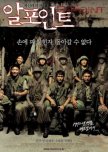
Effective Korean action thriller.
There have been many, mainly American films about the Vietnam War. Since the mid-70s after the end of the war until today, a number of films have been made with Vietnam as a theme: Apocalypse Now, Pluto, Good Morning Vietnam, Born on the Fourth of July: The list could be made long. It is perhaps a way for Hollywood to pay tribute to its soldiers. Although the war ended 50 years ago, Vietnam is its own chapter in American history. The war and its horrors are still remembered in various ways. More than 2´000 American soldiers are still missing. Many of those who came home had experienced terrible experiences and were never the same again.The Korean action horror film R-Point takes place in 1972. A group of 9 soldiers are sent out to an area called R-Point to search for soldiers who had previously been there and had not returned. They have 5 days to find their missing comrades. There shouldn't be any problems. They are all young, strong and brave. What few of them know or care about is that a temple in the area is built on a cemetery where Chinese soldiers who killed a lot of Vietnamese buried them. It was many years ago, but it's probably just as well to respect the final resting place of the dead.
The young soldiers also like to have a little fun and joke with each other, like hiding from their comrades and not answering the calls of the others. It's fun when it's temporary, but it can sometimes be a little creepy if everyone suddenly just disappears as if they've been swallowed by the earth. It's a feeling that you sometimes get to experience: Everyone seems to be suddenly gone, without any explanation. Now you might think that they can't find each other because of the many weeds and trees out in the field, but that's not all. Inside the old temple that serves as a temporary camp, strange things also happen. Things seem to be replaced, things seem to have moved without anyone touching them and unexplainable things start to happen. The soldiers start to get irritated, even tired and angry at each other. No one wants to pretend to be a pussy because those who seem weak are easily teased by others. You feel a little paranoid: What is happening? It's eerie. You almost feel that something unpleasant is going to happen.
R-Point is, in my opinion, like a mix of Blair Witch Project where a group of happy young people go out into the woods and the interesting horror My Little Eye where 5 young people find themselves in a guarded house. In this case, you are not locked in a house and can move around outside too, but what good is that when you still seem to be guarded? The confusion increases. No one and nothing seems to be what you think. You can't even trust your own comrades.
R-Point is a surprisingly good action horror film. It is effective, the atmosphere is intense and the pulse is constantly rising. There are virtually no special effects. Yet it manages to scare the viewer to death. Clearly worth seeing and interesting. In both its home country of Korea and the rest of Asia, this film has been well received by audiences, topping the charts and breaking box office records. It is a nail-biter that keeps the viewer in its grip until the end. An action horror that is perfect for the quiet summer. It is possible that you will want to see it more than once!
Was this review helpful to you?
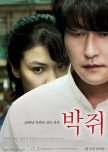
This review may contain spoilers
With a thirst for life.
A Catholic priest literally changes his lifestyle when he becomes a vampire through a blood transfusion. Old Boy director Park Chanwook updates the vampire genre in a sometimes bizarre way, which is always worth watching.Asian horror can sometimes be a little difficult for us in the West to keep up with. Local myths, legends and general folk beliefs about ghosts, small whitewashed children or women looking out from under their wispy bangs can create shivers in the East, but shrugs in the West. It is therefore interesting when Park Chanwook transfers a typically Western genre like the vampire film to his South Korea. Here the story becomes more straightforward for all of us who know the vampire codes, while at the same time he creates something completely new with the theme.
Catholic priest Sanghyeon visits an area exposed to a deadly virus as a volunteer worker. He too is infected, declared dead on his sickbed, but is resurrected from the dead thanks to a blood transfusion. Unfortunately, his bag of blood was vampire blood and the priest soon finds himself on his feet, with a new thirst for life - Literally. His thirst is not limited to blood, but also for the flesh and he tortures himself to hold back his newfound sexual desires.
Sanghyeon becomes something of a miracle man, the only one to have survived the virus, and people make pilgrimages for the hope of a cure from the priest. He realizes his need for blood, but as a deeply religious man he cannot kill for his own survival. He cunningly takes on additional volunteer work at the hospital, where he can easily drop a comatose patient on the elixir of life. Life is complicated when Sanghyeon reconnects with a childhood friend, who has practically married his adoptive sister. He begins a secret relationship with Taeju, as the scorned wife is called. She is reminiscent of Eli in Let the Right One In, delicate but powerful, while at the same time enigmatic. Their relationship gradually takes them down a dark spiral of death and bloodshed.
Park Chanwook made the stylish and at times surreal Old Boy. Thirst involves a more straightforward story, but the style is just as sure and the story vital. He also does not shy away from the slightly bizarre, as in a scene where 2 vampires suck blood out of each other as in a hungry 69 position. He also has a good touch with effects that are portioned out in a nice way without taking over, they sneak in like warts that gradually disappear or veins that form contours under the skin. But above all, the director has a comic streak that comes to the fore in the everyday problems that Sanghyeon experiences as a newly-made vampire. Yes, the fact that he is a Catholic priest is of course a difficult contradiction.
Park Chanwook has taken a genre and updated it, just like in True Blood, Twilight and New Moon, but in a completely unique way. Here you have, excuse the expression, good bites, nice ideas and good acting. But, it gets a little too long. It doesn't get scary either, scary as in built-up tension. But it's still very watchable.
Was this review helpful to you?

The new miniseries about war and samurai is a future classic.
Shôgun is the proof that it can actually be okay to make a remake of something that has already been praised and won great prizes, but then it always has to be done this amazingly well.Shôgun s a mini-series set in 17th-century feudal Japan - And begins with the English pilot John Blackthorne (Cosmo Jarvis) suddenly running aground with his ship on the Japanese coast. There he quickly becomes a pawn in a power game between above all 2 feudal lords. Both with the ambition to lead the entire country until the young emperor comes of age and can take over.
Civil war, honor, power play and multitudes of samurai account for most of the action. But the cultural clashes for Blackthorne, who quickly tries to learn Japanese through the interpreter Lady Mariko (Anna Sawai), also take up a lot of space. During this time, Portugal had already found Japan and sent Catholic priests there who began to convert parts of the Japanese elite to Catholic Christianity, while Blackthrone now comes from a country at war with Portugal and claims to have lied about everything. It simply stirs the already infected pot.
Next year marks the 50th anniversary of the release of James Clavell's book Shôgun, which is partly inspired by real events. Already 5 years later, we got one of the best and most ambitious mini-series ever in television history, when Richard Chamberlain took on the lead role of Blackthorne and Orson Welles acted as narrator for the English-speaking viewers who did not understand Japanese. This time too, most of the dialogue takes place in Japanese, but now without an explanatory voice of course.
The old miniseries was then one of the first series of its kind to show both a naked woman and beheadings (not at the same time, fortunately) on television, which then shocked many viewers in 1980. More than 30 years before Game of Thrones turned that kind of of scenes to an almost absurd level (which gave that series the nickname Tits and Dragons). But it was, of course, the exciting and very complicated story itself, which made Shôgun win the finest television award at the Emmys, for the year's best miniseries.
So, why on earth should we go in and tinker with already acclaimed TV classics? Why not adapt something completely new or come up with a really awesome original story instead? These are questions that are most often muttered when different film studios seem to be trying to grab as much money as possible, by betting on already "given" successes. Sometimes, for example, when we get a really bad film adaptation, like The Last Airbender (2010), fans can still buy that a new and more ambitious attempt is made, like the live action series Avatar: The Last Airbender (which we can now watch on Netflix).
But this thing about remaking something that was already considered near perfect to the same format again... Why? The answer to that question will from now on always be: Shôgun. This is a miniseries that proves both why and how to update something already celebrated and let a new generation share the same story, while giving those of us who have seen the original an adaptation that can realize the story in an even more impressive way.
I read the book myself, which is really the only reason why I gave the already old mini-series a chance. When it comes to movie classics from the 70s or 80s, few frown when titles like Star Wars (1977), Apocalypse Now (1979) or The Godfather (1972) come up. Catching up on the old film classics is part of it. Considerably fewer spend 10 hours on a miniseries from 1980, however, no matter how acclaimed it happened to be at the time.
The fact that filmmaking has developed somewhat enormously in the last 40 years also means that the new adaptation of Shôgun has been able to learn from other war series and films. Just like Game of Thrones could do. And this new adaptation of Shôgun looks absolutely stunning. The photography is magical and so are the actors Hiroyuko Sanada (in the role of the feudal lord Toranaga), Anna Sawai and Cosmo Jarvis.
The book and the old miniseries have long since proven that the story itself is really exciting - And luckily the adaptation of the screenplay has stayed true to its source where needed, but also made minor updates to improve it elsewhere.
I had really high hopes, but was pleasantly surprised that they even managed to exceed them. The new Shôgun miniseries is a future classic, hopefully one of those few (like Band of Brothers) that everyone from now on will look to give a chance - No matter how many years have passed the premiere.
Was this review helpful to you?

